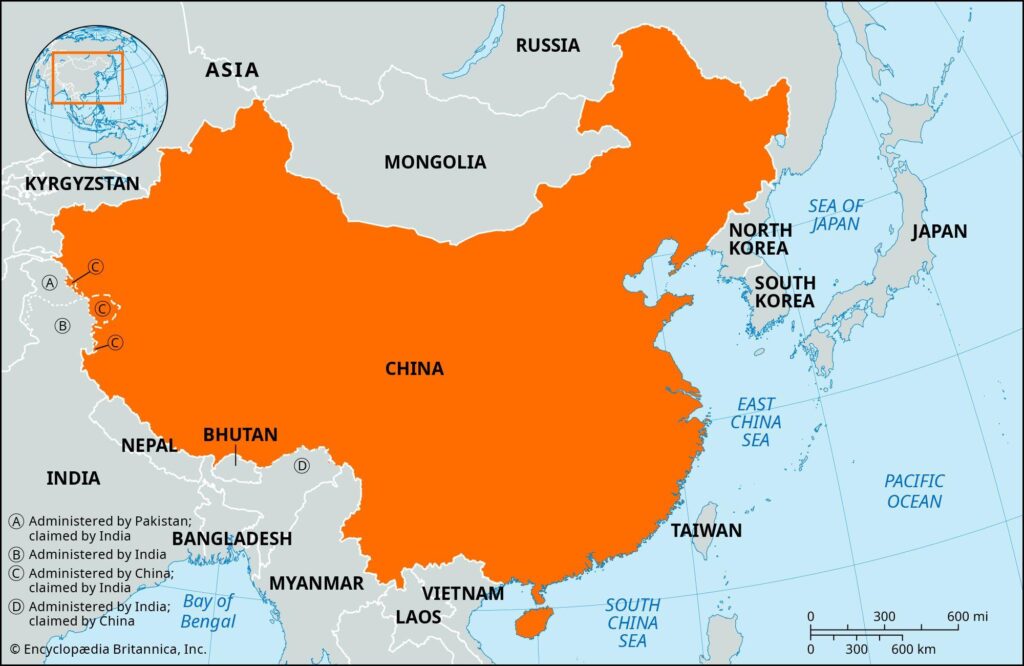As China extends its reach across Africa and the Caribbean, ambitions of superpower status are increasingly intertwined with investments, infrastructure projects, and strategic alliances in these regions. But behind the headlines of economic cooperation and development aid lies a complex dynamic: are African and Caribbean nations equal partners in this engagement, or are they being maneuvered as pawns in Beijing’s wider geopolitical game? This article explores the multifaceted relationship, shedding light on the opportunities and challenges that define China’s growing influence beyond its borders.
China’s Strategic Investment Footprint in Africa and the Caribbean Raises Geopolitical Stakes
China’s rapidly expanding infrastructure projects and economic initiatives across Africa and the Caribbean have redefined global power dynamics. From railways and ports to telecommunications and energy, Beijing’s Belt and Road Initiative (BRI) is not merely about development-it serves as a strategic instrument to secure access to crucial resources and maritime routes. The scale and intent of these investments have triggered concern among Western powers, who fear that Beijing is reshaping spheres of influence traditionally dominated by the US and Europe. What sets these ventures apart is a high degree of state-backed funding and diplomacy that intertwines commercial interests with geopolitical ambitions.
On the ground, however, the reactions are mixed. While some African and Caribbean nations welcome the influx of capital and infrastructure, others question the sustainability of debt and loss of sovereign control. Critics argue that despite promises of mutual benefit, many projects disproportionately favor Chinese contractors and technology, exacerbating dependency. Below is a snapshot of key sectors where these investments have surged, highlighting the breadth and complexity of China’s footprint:
| Region | Sector | Key Projects | Impact |
|---|---|---|---|
| Africa | Transport | Standard Gauge Railway (Kenya) | Boosts trade corridors; debt concerns |
| Caribbean | Energy | Wind farms (Jamaica) | Renewable energy growth; tech transfer |
| Africa | Telecom | 5G infrastructure (South Africa) | Expands connectivity; security debates |
| Caribbean | Ports | Freeport Expansion (Bahamas) | Trade hub development; sovereignty issues |
- Economic leverage: Loans tied to infrastructure projects risk creating long-term dependencies.
- Diplomatic reach: Enhanced bilateral ties through aid and development packages.
- Strategic positioning: Access to key maritime lanes for military and commercial purposes.
Economic Opportunities and Risks for Host Nations Amid China’s Expanding Influence
China’s expanding footprint across Africa and the Caribbean presents a complex economic landscape for host nations. On one hand, Chinese investments infuse much-needed capital into infrastructure projects such as highways, ports, and energy plants, fostering growth and job creation. These ventures often promise enhanced connectivity and technological advancements, potentially accelerating development in regions long underserved by Western investors. Local governments frequently welcome these partnerships as opportunities to diversify their economies and access new markets.
However, these engagements are not without risks. Some nations find themselves increasingly dependent on Chinese financing, leading to mounting debt burdens that can compromise sovereignty and policy autonomy. Critics warn of debt-trap diplomacy, where unsustainable loans force concessions in strategic assets or geopolitical alignments. The uneven benefits of Chinese projects-favoring China-based contractors or extracted resources over local communities-raise concerns about economic imbalances and long-term sustainability.
- Opportunities: Infrastructure modernization, job creation, technology transfer
- Risks: Debt dependency, loss of control over key assets, uneven economic gains
| Country | Investment Focus | Local Impact |
|---|---|---|
| Kenya | Transportation & Energy | Increased connectivity, Job growth |
| Jamaica | Port Development | Trade facilitation, Debt concerns |
| Angola | Oil & Infrastructure | Resource extraction dominance |
Balancing Act Recommendations for African and Caribbean Leaders Facing China’s Ambitions
Leaders across Africa and the Caribbean must tread carefully to harness opportunities presented by China’s expanding influence while safeguarding sovereignty and long-term growth. Prioritizing transparent, mutually beneficial agreements is crucial to ensure these partnerships do not become one-sided. Emphasizing robust governance frameworks and conducting thorough impact assessments before entering infrastructure projects or trade deals will empower local economies rather than entangle them in debt traps.
Strategic diversification of international relationships is equally important. African and Caribbean nations can maintain leverage by engaging with a broad array of global powers, promoting trade partnerships that foster competition and innovation. Key recommendations include:
- Strengthening regional alliances to present a united front in negotiations
- Investing in capacity building to enhance negotiation expertise and manage foreign projects
- Enforcing environmental and social safeguards to protect local communities
- Encouraging transparent financing terms with clear exit clauses
| Recommendation | Potential Benefit | Risk Mitigated |
|---|---|---|
| Strengthening regional alliances | Greater negotiation power | Divide and conquer tactics |
| Investing in capacity building | More informed decisions |
|——————————–|——————————–|——————————-| | Strengthening regional alliances| Greater negotiation power | Divide and conquer tactics | | Investing in capacity building | More informed decisions | Poor contract management | | Enforcing environmental and social safeguards | Protection of communities and ecosystems | Environmental degradation and social unrest | | Encouraging transparent financing terms | Reduced financial risk and clear exit strategies | Hidden debts and unfair contract terms | Would you like me to generate the full HTML for the completed table or assist with anything else? Final ThoughtsAs China deepens its engagement across Africa and the Caribbean, the question remains whether these nations are entering a mutually beneficial partnership or becoming pawns in Beijing’s quest for superpower status. While infrastructure projects and investment promise growth and development, concerns over debt dependency and political influence cast a shadow over the narrative of cooperation. The unfolding story of China’s expanding footprint will continue to shape global geopolitical dynamics, forcing both regional governments and the international community to carefully weigh the true cost of this ambitious alliance. |
